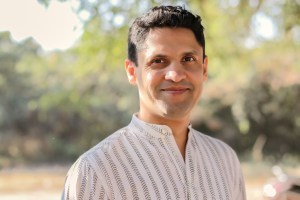Satya Robyn's Blog, page 4
March 3, 2018
Roselle Angwin Says: This Helps
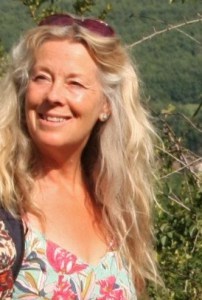 Here is the last of our interviews to celebrate my new book, ‘What Helps: Sixty Slogans to Live By‘, with Zen practitioner and poet Roselle Angwin. Over to Roselle!
Here is the last of our interviews to celebrate my new book, ‘What Helps: Sixty Slogans to Live By‘, with Zen practitioner and poet Roselle Angwin. Over to Roselle!
What are your three favourite slogans?
1 ‘Be kind – everyone you meet is fighting a hard battle.’ (Plato, to my constant surprise.)
2 ‘Looking into the heart of light, the silence.’ (T S Eliot. I repeat this when anxious or off-balance.)
3 ‘I’m practising non-attachment to my views so that I may be open to others’.’ (I’m SO opinionated. I use this one a lot.)
Roselle is a Zen practitioner of over 40 years, and a member of the former Network of Engaged Buddhists. She blends Zen with druidry, in her life, her books and her courses.
Read the introduction to my new book here & the first chapter here. All the others interviews I’ve published so far are here.
March 1, 2018
Susannah Conway Says: This Helps
 Today we welcome Susannah Conway, who has been inspiring people through her blog, courses and books for more than a decade. This is the latest interview in celebration of my new book, ‘What Helps: Sixty Slogans to Live By‘.
Today we welcome Susannah Conway, who has been inspiring people through her blog, courses and books for more than a decade. This is the latest interview in celebration of my new book, ‘What Helps: Sixty Slogans to Live By‘.
What is your favourite slogan?
“Go gently”. This is what my paternal grandmother would say to me when we said goodbye at the end of our weekly phone calls. My gran led a very quiet life with my grandfather, and up until he died she had never really been on her own. She left her family home in her late teens to live with her new husband, his three brothers and their parents. After 60+ years of marriage, she faced her final years alone and I know it was desperately hard for her. She died a few years before I faced my own bereavement, and I so often wished I could have phoned to tell her I now understood what she’d been going through. “Go gently” has become the one piece of advice I’ve tattooed on my heart. To me it means take your time, keep your head, and above all else, be kind to yourself. I try to remember this when my stress levels are spiking or I’m blowing something out of proportion. When I go gently I am calmer, more centred and more present to my world.
Susannah Conway is a writer, photographer and teacher who’s been sharing her heart online for over a decade. Dedicated to helping people know, trust and express themselves better, her work is steeped in self-compassion, kindness and practicality. Susannah’s creative courses have been enjoyed by thousands of people from over 50 countries around the world and her first book, This I Know: Notes on Unraveling the Heart, hit bookshelves in 2012. Her most recent, LONDONTOWN: A Photographic Tour of the City’s Delights, was published in 2016. Visit her here .
*
Read the introduction to my new book here & the first chapter here. All the others interviews I’ve published so far are here.
February 28, 2018
Terrance Keenan Says: This Helps
 Today we welcome monk, writer & artist Terrance Keenan – first I fell in love with his book, Zen Encounters with Loneliness, and then I was lucky enough to become his friend. It’s an honour to have him here today. This is the latest interview in celebration of my new book, ‘What Helps: Sixty Slogans to Live By‘.
Today we welcome monk, writer & artist Terrance Keenan – first I fell in love with his book, Zen Encounters with Loneliness, and then I was lucky enough to become his friend. It’s an honour to have him here today. This is the latest interview in celebration of my new book, ‘What Helps: Sixty Slogans to Live By‘.
What slogan helps you?
No blame. Be kind. Love everything.
How does this slogan help you?
It is simple. There are no ends to its permutations. Taking blame out of your vocabulary, out of your life, out of your consciousness, wow! To not just act in a nice way, but to actually be kind, be kindness itself in your whole being. It changes everything. And to love everything teaches all you need to know about unconditional love and a life of compassion.
How have you seen this slogan help others?
People in recovery have used it as a paired down version of the 12 step program. People dying have used it to diffuse their fear and anger. People lost have told me it has helped them take the first steps back to finding themselves and their world again. They pause, recite the 3 phrases, and all the steps are right there. They find they are affirmed by and can once again affirm everything else.
What else helps you when you feel stuck, when you are suffering, or when you are in need of inspiration?
I do zazen (especially), walk the lanes and hills of West Cork, peg-out-laundry-meditation, read the old poems, and sing. Sometimes just one or some of these, sometimes all.
What advice do you need to remind yourself of the most often?
No blame. Be kind. Love everything.
Terry’s Artist’s Statement: I spend every moment of my life in the happily hopeless task of learning how to put into form and words what cannot be seen or spoken. Thomas Merton said poetry was a door to that place about which nothing can be said. Virginia Woolf wrote, ‘We have reached the edge where painting breaks off and takes her way into the silent land… and all our words will fold their wings and sit huddled like rooks on the tops of winter trees.’ I ask why something must mean? Does dawn mean? Do stars? A flower? Broken city streets? When art devolved into being just for its own sake, we lost something vital – a voice for the reality and joy of our being in the world. Art emerges from the ash of thought when it is touched by our need to be affirmed by reality. To me the joy of reality subverts our ego’s delusions about reality.
Joy is the great revolution.
Reality is the last nostalgia.
*
Read the introduction to my new book here & the first chapter here. All the others interviews I’ve published so far are here.
Sas Petherick Says: This Helps
February 27, 2018
Kodo Nishimura Says: This Helps
 Today we welcome the gorgeous Kodo Nishimura, a Pureland Buddhist monk and an international make-up artist. This is the latest interview in celebration of my new book, ‘What Helps: Sixty Slogans to Live By‘ – the others are here.
Today we welcome the gorgeous Kodo Nishimura, a Pureland Buddhist monk and an international make-up artist. This is the latest interview in celebration of my new book, ‘What Helps: Sixty Slogans to Live By‘ – the others are here.
What slogan helps you?
Be honest to yourself.
How does this slogan help you?
It is very easy to live with an unwanted reality and fool yourself and say it is okay. It is easy to be accustomed to it and forget to pursue what you want in life. You can forget that life can be changed by changing yourself. It is usually because of social values, common sense or lack of support. I would say, be confident and stand up, determine to be different and be honest with your feelings. It is better to live your life without regrets in my opinion. Some say that the moment you determine to make moves, the very thing you want is already in your hands. You have to step into the cave of your heart. Hold a torch of awareness and walk around, go deeper, and direct lights to all the surface of the wall and discover where your thoughts are coming from and why. When you discover the origins of your thoughts, you become fearless.
How have you seen this slogan help others?
I think that people who are honest to themselves are the happiest people. Do what you like, be with whom you want to be with, and love what you love. The ones who are not happy can not happy for others’ happiness. The ones who are free and happy can be generous and give love. Being honest can create chain reaction of love and smiles. Make yourself be the happiest. It will not only help you, but will help others in the end.
What else helps you when you feel stuck, when you are suffering, or when you are in need of inspiration?
Heartaches can be treated by physical activities. Talking to people, exercising, eating healthy and singing has helped me. When I am mentally stuck, I need physical actions to release the toxins and be balanced. If you are depressed and sick, see if it is is because of your mental problems, or it is because of the corruption of a healthy lifestyle. If you think the world is foggy, make sure your eyeglasses are clean first.
What advice do you need to remind yourself of the most often?
I have to remind myself to slow down; breathe. I tend to worry too much about the future and forget to enjoy the very moment. It is great to be strategic and plan for the future, but if you do that too much, you will be thinking of the future when you are supposed to be enjoying the achievements. It is like you are googling the restaurant for dinner while you have delicious lunch in front of you. It is the same thing to be appreciative of the current situation. Don’t forget to be thankful for everything.
Kodo Nishimura is a global makeup artist and a certified Buddhist monk. His story as a makeup artist and a monk is celebrated globally including The Times Newspaper, BBC Radio, Vogue, The New York Style Magazine, Buzzfeed, Cosmopolitan and more. His makeup work has appeared in national shows such as Miss Universe, Miss USA, The View and commercials for Toyota’s Lexus GS and Listerine. He has done makeup for Christina Milian, Carson Kressley, Halima Aden, Jeanie Mai, Andrew VanWyngarden of MGMT, and Olympic gold medalist Daisuke Takahashi. He is also passionate about education and he has taught numerous seminars including free LGBTQ+ friendly makeup classes. His mission is to empower all people of all gender using makeup skills with a hint of Buddhism. www.kodonishimura.com, www.instagram.com/kodomakeup
*
Read the introduction to my new book here & the first chapter here.
February 25, 2018
Really? Just as I am?
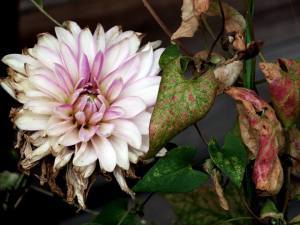 I have faith that we are all acceptable just as we are. I have passed this on to many people, and I have seen it bear fruit in their lives. It’s the name of our Buddhist book, and ‘just as you are’ is the most important slogan in my new book.
I have faith that we are all acceptable just as we are. I have passed this on to many people, and I have seen it bear fruit in their lives. It’s the name of our Buddhist book, and ‘just as you are’ is the most important slogan in my new book.
This doesn’t mean that we are perfect (far from it), or that we don’t need to take responsibility for the ways in which we harm others. It means that, even when we’re at our very worst, we are seen and understood and cared about. For me, the Buddha does this caring, but for others it is The Universe, Limitless Love, God, Humankind or whatever else is bigger and wiser than you.
Recently I have been observing my behaviour. I spend an awful lot of my time thinking about how I can improve. I read lots of books, do spiritual practice, have therapy, and sign up to new courses. I go to great lengths to show others my best side. I seek affirmation from social media. I’m frequently disappointed in myself when I fail to keep up with the daily disciplines I’ve decided on. Is this the behaviour of someone who feels acceptable just as they are?
On the plane back from Kyoto I watched two beautiful films; Maudie, about a young arthritic woman in Nova Scotia who taught herself to paint, and Patti Cakes, about an overweight white girl with an alcoholic mother who dreams of becoming a hip-hop legend. These women are riddled with flaws and limitations. Both of them slowly and painfully find a place for themselves in the world, and a way to make an offering of their unique creativity, regardless of how they are judged by others.
I fell in love with Maudie and Patti Cakes. Tears streamed down my face as I understood them and appreciated them just as they were. The tears were also for me. I saw how it might be possible that I too could just be myself, with all my flaws and limitations, and also be loved. I felt another layer of need-to-manipulate-the-world-into-loving-me peeling off, and I was flooded with relief, warmth and peace.
I am under no illusions. This dissolved layer of fear and defence is the tip of a very big iceberg. I will continue to be compulsive around food and money and the internet. I will continue to get into codependent tangles with others. A part of me is hoping right now that you will praise me for this blog post (amused smile).
Also, I am so grateful for the layers that do get peeled off, as each uncovering leaves me more alive than I was before. When I let go of ego, I am relieved of the striving that is motivated by fear. I feel lighter, more relaxed and more secure. I find myself randomly dancing around the living room or beaming at the cats. And I become more intimate with the flower that blooms and is also already dying. It is so beautiful!!
just as you are
really –
just as you are
Inagaki
*
Photo by Sandra Hajduczek with gratitude
February 21, 2018
Luisa A. Igloria says: This Helps
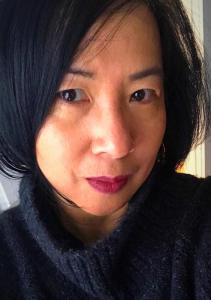 Today I’d like to introduce poet Luisa A. Igloria, the latest interview in celebration of my new book, ‘What Helps: Sixty Slogans to Live By‘.
Today I’d like to introduce poet Luisa A. Igloria, the latest interview in celebration of my new book, ‘What Helps: Sixty Slogans to Live By‘.
What slogan helps you?
The one I think of most of the time is an Ilocano saying. Both my parents were/are Ilocano, and I remember my elders offering it in various situations, as I was growing up: “Saan nga maydaysa iti aldaw.” The literal translation is something like “Today is not the only day” or “There is more than just this day.”
How does this slogan help you?
I never gave it too much thought growing up, but as an adult I really came to appreciate the wisdom in this simple, homegrown/folk saying.
My sense is that it’s not something completely original only in my family; rather, that there may be variants of this saying familiar to other communities where I grew up in the Philippines (Baguio City up north in the Cordillera region of the Philippines).
It reminds me that things change all the time, and that whatever is overpowering or overwhelming in one moment (whether it is joyful or painful) is not a permanent condition. It also reminds me to find that centering place in any strong or overpowering experience so that I don’t completely get swept away.
It’s also perfect for thinking through the large or small moments of triumph or despair (which sometimes feel joined at the hip, actually) in writing – for instance, whenever we’ve felt successful at capturing the essence of something in language, there can also be a kind of underlying terror or anxiety after the rush of elation: that feeling of “I don’t know if I could ever do something like that again!”
How have you seen this slogan help others?
In my personal context, I’ve offered the same saying to my daughters, to try and help them think through difficult situations. There’s something balancing and grounding about the idea of not forgetting where you are, who you are, in the scale of time and things.
What else helps you when you feel stuck, when you are suffering, or when you are in need of inspiration?
Poetry of course. Reading others’ words does this for me. It reassures me that I am– we are– not the only one/s.
What advice do you need to remind yourself of the most often?
In the swirl and seemingly increasing oppressiveness and chaos of every day, more and more I feel the need to prioritize: to keep the most basic and important things in sight– family, friendships, love, kindness.
Luisa A. Igloria is the winner of the 2015 Resurgence Prize (UK), the world’s first major award for ecopoetry, selected by former UK poet laureate Sir Andrew Motion, Alice Oswald, and Jo Shapcott. She is the author of the chapbooks Haori(Tea & Tattered Pages Press, 2017), Check & Balance (Moria Press/Locofo Chaps, 2017), and Bright as Mirrors Left in the Grass (Kudzu House Press eChapbook selection for Spring 2015); plus the full length works The Buddha Wonders if She is Having a Mid-Life Crisis (Phoenicia Publishing, Montreal, March 2018), Ode to the Heart Smaller than a Pencil Eraser (selected by Mark Doty for the 2014 May Swenson Prize, Utah State University Press), Night Willow (Phoenicia Publishing, Montreal, 2014), The Saints of Streets (University of Santo Tomas Publishing House, 2013), Juan Luna’s Revolver (2009 Ernest Sandeen Prize, University of Notre Dame Press), and nine other books. She teaches on the faculty of the MFA Creative Writing Program at Old Dominion University, which she directed from 2009-2015. www.luisaigloria.com
Read the other This Helps interviews as they appear here. These interviews are in celebration of my new book, ‘What Helps: Sixty Slogans to Live By‘.
My trip to Kyoto
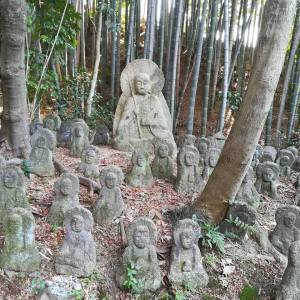 A few days ago I returned from Kyoto, where Kaspa and I had spent a couple of weeks on our first half-holiday half-pilgrimage to the city where our form of Buddhism was founded.
A few days ago I returned from Kyoto, where Kaspa and I had spent a couple of weeks on our first half-holiday half-pilgrimage to the city where our form of Buddhism was founded.
What have I brought home with me? Apart from a love of heated toilet seats…
We witnessed a lot of beauty on our trip. Five hundred Buddhas carved by a single monk over a decade, scattered through the woods behind his tiny temple. Geishas slipping through the streets of Gion. Bento boxes with nine delicious different dishes, presented like jewels. Calm temple gardens with their carefully shaped trees and shrubs, any stray leaves swept from the rich mossy floor as soon as they fall.
I will carry this beauty with me. But more than anything, I have been soaked in the spirit of the Japanese people. This is what has inspired us to spring clean our flat on our return (I won’t tell you how long we hadn’t cleaned our windows for…), and to raise money for a huge new Buddha for the front of the temple. This is what makes me smile as I type.
What is this spirit? It’s hard to put my finger on without falling into racial stereotyping, which can be dangerous. Japanese people are as various and surprising as people from any other nation. And, of course, there are always shadow sides to all cultures. But let me try.
What affected me most was the care and attention people brought to their work, whether that was directing pedestrians safely around roadworks, serving us in shops or cleaning the tiles outside the subway. People were deferential to each other – noticing what others needed, and frequently showing their respect by bowing. There was a quiet settled feeling about the place – no hurry, let’s do this properly and with love – which soaked into me.
I’m a real homebody, and I need persuading to leave my little castle/temple. It was so good to come back to the sangha & our animals. But when we go away, even if just to a neighbouring town, we come home with different eyes, and we can suddenly see what needs to be done. Not because of “oughts” or because of what other people think of us, but because we feel moved to, by love.
Where is it that fills you with inspiration? A local forest? The sea? The bench in your back garden? When can you get there?
*
(I run online mindful writing classes and Writing Towards Healing is half price from today til the 1st of March when we’ll start – read more here).
February 20, 2018
Nithya Shanti says: This Helps
Introducing the latest in my interviews to celebrate the release of What Helps: Sixty Slogans to Live By – today with spiritual teacher Nithya Shanti. We’ll begin with Nithya’s:
THREE MANTRAS FOR CONSCIOUS LIVING
Here are three of my favorite mantras. They have been a source of countless blessings in my life and I have enjoyed sharing them with many friends over the years.
1) Cancel – Cancel is a powerful antidote to all virus thoughts and beliefs. Every time I notice a low quality thought or perception, such as “That is too difficult” or “I can’t do it”, I inwardly say the mantra “Cancel!”. Most people, when they first learn this mantra, are astonished by how many times they end up saying it in a day. Saying it a few hundred times is not uncommon! The good news is that in a few weeks they find that virus thoughts decrease and they have to say it less and less, eventually cancelling the cancel, and only using it occasionally when a stray limiting thought arises. The reason “Cancel!” works is because it makes us vigilant towards our own thoughts and teaches us not to believe everything we think or what we hear from others. Cancel also reveals to us how “Mind” is short for “Mostly Inaccurate Neuro-Drama” and makes us more conscious of our thought patterns.
2) How Wonderful – No matter what happens I like to say “How wonderful!”. It is an affirmation that there is always something to be thankful for in any situation and the understanding that there are no mistakes in the universe. The more we use this mantra, the more we find that everything happens at the right time and even seemingly unpleasant situations resolve themselves into great blessings. When people first use this mantra it is common for them to wonder if they are simply fooling themselves. However, those who persist understand the twin principles that “What we think about, and thank about, is brought about” and “What the thinker thinks, the prover proves”.
3) Rule # 6 – This is a delightful rule I learned from Benjamin Zander. It means “Don’t take life so-ooo seriously!”. Rule # 6 is a great reminder that there is no evidence that life is serious. For all we know we are the unwitting actors in a great cosmic comedy. Everyone else is laughing while we are lamenting and crying. This unique rule reminds us not to take things so-ooo seriously, and also not to take ourselves so-ooo seriously and learn to laugh more. Not taking seriously means we approach things with a more lighthearted and playful attitude. It is about welcoming all of life with a cheerful trusting disposition. Just like we laugh about the difficult times in school when we meet our classmates at a reunion, we will probably laugh at our current challenges from a wiser and broader perspective a few decades from now. Rule # 6 invites us not to wait for a few decades and to laugh now! People sometimes ask what are the other rules and why it is called Rule # 6? The answer is “Sorry, there are no other rules! Please don’t take life so-ooo seriously”
These three mantras are the practical distillation of deep wisdom and timeless principles of conscious living. If you say them long enough you will find they start to be a part of you. They are a powerful solvent that help to dissolve negative, anxious and stale attitudes and beliefs.
There are three amazing outcomes that are immediately accessible to those who use these mantras. I call them CFD, GFD and JFD. CFD means to have a “Complaint Free Day”. GFD means to have a “Gratitude Filled Day”. Finally, JFD means to have a “Joy Filled Day”.
Eventually these mantras and the principles they represent enable us to lead a CFL, GFL and JFL. Which as you can guess means a “Complaint Free Life”, “Gratitude Filled Life”, and a “Joy Filled Life”. May you benefit from these mantras as I have and share them with your loved ones.
To answer your questions more specifically:
What slogan helps you?
I shared three I use above a lot. I actually have a collection of about 30 I use fairly regularly. That’s a conversation for another day! These days I use “All is Source” as a reminder that everything is sacred and one and Divine and empty at the same time. For the following questions, I will answer for the slogan “How Wonderful!”
How does this slogan help you?
It helps me by immediately bringing up a combination of cheerful acceptance and gratefulness with a touch of humor and light heartedness!
How have you seen this slogan help others?
I have shared it many thousands of people and they love it! It is often the thing they remember and use most often of all the things I teach and share. For example, a friend missed his flight and before he could be overwhelmed with anxiety he said “How Wonderful!” This completely shifted his attitude to seeing all the possibilities in the situation: The airline was putting him on the next flight, he had money to get food at the airport, he had fully charged devices to get some work done, etc.
What else helps you when you feel stuck, when you are suffering, or when you are in need of inspiration?
When I am stuck, these days I use the following questions: “Who is experiencing all this?” To which I check in and answer, “I Am!” And then I ask, “Who is experiencing the I Am?” To which there is no longer any answer – just an exquisite alert silence. I rest in this silence for as long as possible. This helps me unhook from most things that bother me.
What advice do you need to remind yourself of the most often?
The advice I remind myself most often is that the central aim I have dedicated myself to in is self-realization / awakening / enlightenment. So whatever happens is in service of that. The obstacle IS the path. When strong, serve, when weak, surrender!
Nithya Shanti is an internationally respected spiritual teacher, seminar leader and educator, committed to sharing practical wisdom teachings for happiness and awakening with people in a joyful and transformational way.
Despite having a promising career in the corporate sector, Nithya was drawn to pursue his spiritual quest further. In 2002, he ordained as a Buddhist Monk. After six years of living in monasteries, he was guided to live, learn and serve in broader ways than the traditional role of a monk permitted. He stepped out of the robes in early 2008 and now shares inspiring teachings in Happiness Joyshops, youth programs, corporate trainings and meditation retreats around the world.
Read the other This Helps interviews as they appear here. These interviews are in celebration of my new book, ‘What Helps: Sixty Slogans to Live By‘.
February 1, 2018
Michael Nobbs Says: This Helps
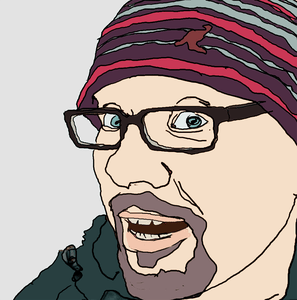 “Little and often” is the slogan that helps me keep my creative life on gentle track. A friend said it to me a lot of years ago and since then it has become the basis for my creative practice and a cornerstone of my teaching.
“Little and often” is the slogan that helps me keep my creative life on gentle track. A friend said it to me a lot of years ago and since then it has become the basis for my creative practice and a cornerstone of my teaching.
Every day (well five days a week) I set a timer for twenty minutes and do a little work on my current creative project. Little and often, twenty minutes by twenty minutes, I keep a little momentum going in my creative life.
Over the years by working little and often I’ve slowly built a body of work and a business that supports me.
Four days a week, in my podcast One Thing Today, I encourage other people to set a timer and work alongside me. Together we all move our creative lives on a little.
I think setting the timer creates a little bit of magic. If I’m stuck or feeling uninspired, winding up the timer and creating that little container of time usually gets me unstuck, and by the end of the twenty minutes a little inspiration has found me.
*
Here’s more about the lovely Michael Nobbs: “I’m an artist, podcaster and tea drinker (not necessarily in that order!). Back at the end of the 1990s I was diagnosed with ME/CFS, a chronic illness that severely limits how much I can do each day. Over the years I’ve learnt a lot about living the best life I possibly can by accepting what I can’t change and working with what I can. I have built a successful creative career and am continuing to learn how to combine that with a gentle and fulfilling life.”
Read the other This Helps interviews as they appear here. These interviews are in celebration of my new book, ‘What Helps: Sixty Slogans to Live By‘.



